Baird Family History & Genealogy
Baird Last Name History & Origin
AddHistory
We don't have any information on the history of the Baird name. Have information to share?
Name Origin
We don't have any information on the origins of the Baird name. Have information to share?
Spellings & Pronunciations
We don't have any alternate spellings or pronunciation information on the Baird name. Have information to share?
Nationality & Ethnicity
We don't have any information on the nationality / ethnicity of the Baird name. Have information to share?
Famous People named Baird
Are there famous people from the Baird family? Share their story.
Early Bairds
These are the earliest records we have of the Baird family.

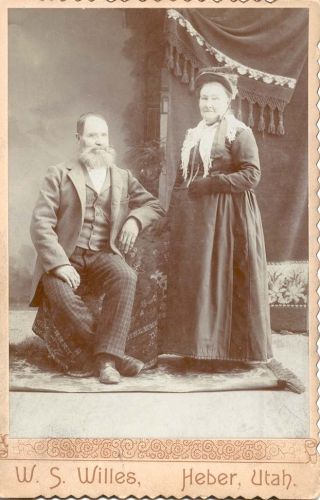



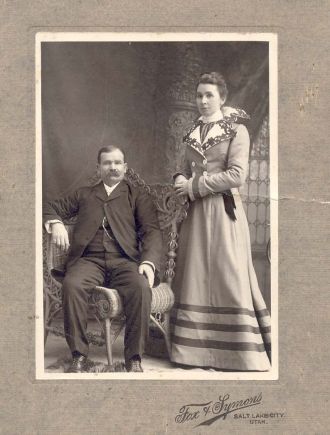


Baird Family Members
Baird Family Photos
Discover Baird family photos shared by the community. These photos contain people and places related to the Baird last name.

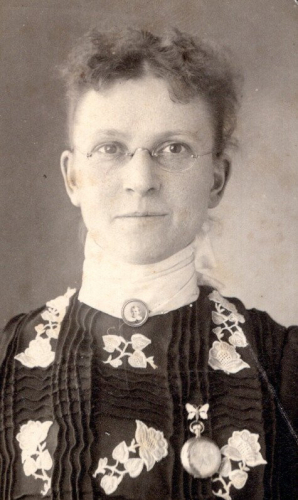
1 - Cora GALE, taken at the T. U. Doust Studio in Syracuse, NY, 1890's or early 1900's, in her 30's or 40's at the time
2 - Florence GALE, taken at the L. Burned & Co. Studio in Syracuse or Chautauqua, NY, 1890's or early 1900's, in her 20's
Based on limited research I was able to gather the following information regarding Cora and Florence and their families:
Cora A. GALE was b. 29 Jul 1868 in Orwell, NY to parents Orson or Orrison J. GALE (1843-1897) and Sarah Elizabeth DUELL or DRIEL (1829-1914) who were married in 1865 in Orwell, NY. Cora had one sibling, a brother Orson Milton GALE (1866-1921). Cora died 21 Aug 1911 in Syracuse, NY and is buried in the Oakwood Cemetery in Syracuse, NY.
Florence A. BAIRD was b. 1867 in Syracuse, NY to parents Robert BAIRD (1818-1887) and Susan Ann COREY (1826-1890). Florence was one of 7 children born to this couple including Anna A.; Mary E.; Elizabeth Medora; Jane F.; William Corey; Susan C.; and Florence A. BAIRD, all born between 1847 and 1867. Florence married Orson Milton GALE (1866-1921) on 24 Jun 1890 in Syracuse, NY and she died 10 Mar 1929 in Syracuse, NY and is also buried in the Oakwood Cemetery in Syracuse, NY.
I would like to get these precious old photographs to a family member and would appreciate you contacting me if you are a family member or know someone who might be.
Thanks,
Shelley


Ethel was born about 1904 in Iowa and had a younger sister, Stella Baird, who died young of diptheria (her photo is also posted on AncientFaces)
Photo found in an antique store in Clovis, CA.
People in photo include: Ethel Baird Lewis, Ethel Baird Lewes, and Ethel Baird

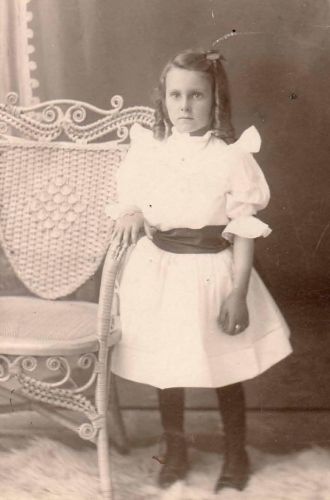
Photo found in an antique store in Clovis, CA.
People in photo include: Stella Baird

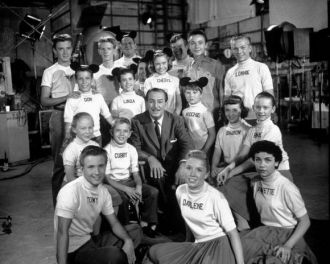
Of course, Annette Funicello was the heroine, but I loved Tim Considine. I loved it when Spin and Marty were on.
People in photo include: Annette Funicello, Tommy Cole, Darlene Gillespie, Cheryl Holdridge, Doreen Tracey, Cubby O'Brien, Karen Pendleton, Lonnie Burr, Sharon Baird, Kevin Corcoran (Moochie), and Tommy Kirk

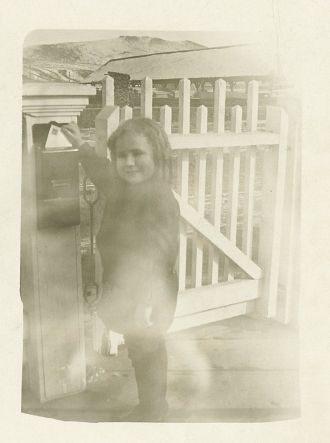
People in photo include: M. M. Samm

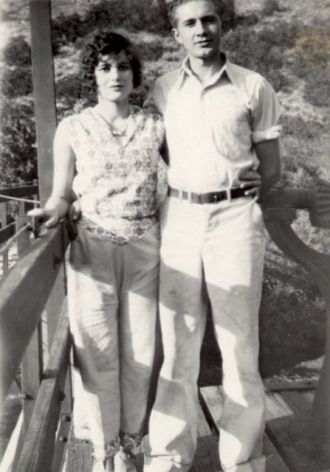

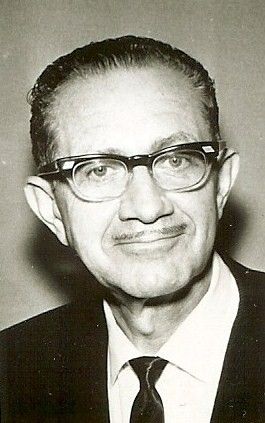

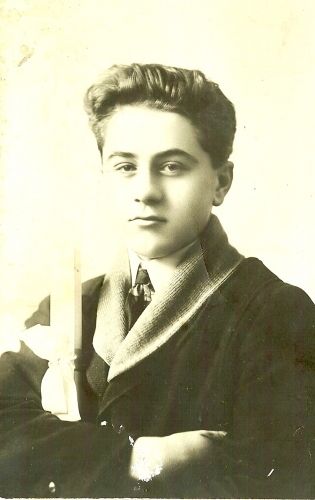
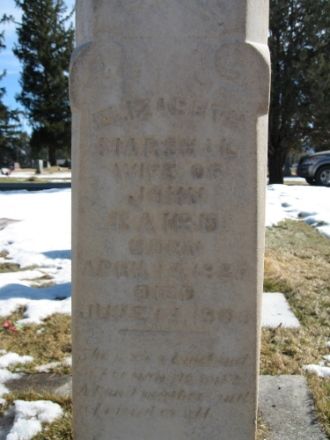
14 Apr 1827-14 Jun 1905
Buried in Heber, Wasatch, Utah.
Baird Family Tree
Discover the most common names, oldest records and life expectancy of people with the last name Baird.
Updated Baird Biographies


Popular Baird Biographies







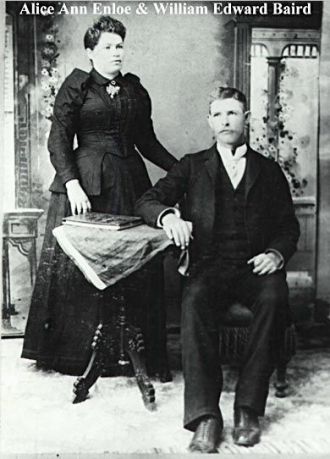

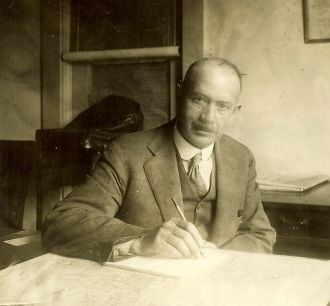

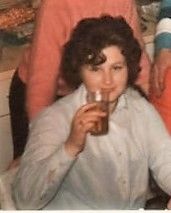
Baird Death Records & Life Expectancy
The average age of a Baird family member is 74.0 years old according to our database of 14,193 people with the last name Baird that have a birth and death date listed.
Life Expectancy
Oldest Bairds
These are the longest-lived members of the Baird family on AncientFaces.
Other Baird Records
Share memories about your Baird family
Leave comments and ask questions related to the Baird family.
Elizabeth Marshall Baird
Came to Utah October 1866
Written by Elizabeth Ann Fowers Phillips, Her Granddaughter
Of Camp No. 2 of Daughters of Utah Pioneers, Provo, Utah
Elizabeth Marshall Baird was born April 14, 1827 in Parkhead, Lanarkshire, Scotland, daughter of William Marshall and Ann Wiley Marshall of Scotland. Her father was short of stature. He was in the battle of Waterloo and his sword hung over their fireplace.
After the third daughter, Elizabeth, was born her father died. Her mother received a small army pension an also took in sewing which she did at home for wealthy patrons. All three girls did fine sewing and helped their mother earn their livelihood at this trade. Grandmother Elizabeth was the youngest of the family and was sent for thread, trimming and to deliver the finished articles and other errands.
She was a beautiful little girl, height 5 feet 1 inch tall with a pink and white completion, light brown hair and blue grey eyes. She had small dainty hands and her two eldest sisters always admired her for her sunny, cheerful disposition. She had a soprano voice and sang in the church choir. This little Scotch lassie lived good music.
She met John Baird and were soon sweethearts. When Elizabeth wasn’t interested in going out with him, her older sisters would tell her they wished John would ask them to go out. After a short romance they were married at the age of Seventeen in June, 1844. Grandfather was always kind and considerate of her. He was sergeant of the police force and made a good income and furnished them a lovely home.
Grandmother’s older sister, Ann, married James Robinson and had two daughters, Martha and Mary, and ten sons. James and their older sons worked in the coal mines. They lived in what was known as Fancy Row, in Rutherglen about three miles from Glasgow and were called Colliers. They made good wages. Their eldest son, William, had a beautiful baritone voice and sang in Glasgow entertainments. All the family was musically inclined—good singers, piano players, playing different instruments, and had a band within their family. They had a beautiful home and furnishings. Their children had the advantage of a good education.
Grandmother’s other sister, Barbara Marshall, married Tom McCollough or McColluch. She had brown hair and blue grey eyes and was large of stature. She had a sense of humor which her friends and family enjoyed.
Soon after grandmother was married they heard LDS missionaries preaching and became interested. They investigated this new religion thoroughly and joined the church.
They were a thrifty and conservative family and began saving to come to Utah where their children would have the advantage of the new religion and a free country.
John and Elizabeth had five sons and three daughters, Robert, William, Ann, Elizabeth, James, John, and Joseph were born in Scotland. The last two listed died in fancy. Martha Jane, the youngest was born in Heber City, Wasatch County, Utah. They left their material comforts and brought necessities.
The family left Liverpool, England, June 1865 on the ship Bellewood, an old freighter which had been fixed up with bunks and pressed into service as a passenger ship. There were 700 Mormons aboard and it took them many weeks to make the trip from Liverpool to New York. The ship leaked badly, and at night they awoke to hear the captain call his crew to man the pumps. The passengers feared they would never reach land and spent much time praying and singing hymns. Aboard ship each family’s food was rationed. Each woman prepared her own food for her family and handed it to the cook. When it was cooked he brought it to the mother to serve to her family. There wasn’t enough food and they were very hungry during the entire voyage. So great was the relief of the passengers when they finally landed in New York in July, 1865 that everyone cried and kneeled down to give thanks foe their safe delivery.
The Ship Bellewood sank in mid-ocean on her return trip to England.
The Bairds moved from Castle Gardens to Williamsburg, New York and lived there fourteen months to earn money to buy oxen, a wagon and provisions to cross the plains. The family started their journey again. When they reached the Mississippi, they took a river boat and traveled down to Council Bluffs, Iowa where they joined a party of immigrants leaving for the West in Captain Chipmans Company. They had bought three yoke of oxen and covered wagon which grandfather drove across the plains. He had never had experience with animals before. After a week with the Chipman Company, their two oldest sons, Robert and William, left to drive a freight train of covered wagons hitched together and pulled by six yoke of oxen at $40 per month. The family traveled ahead of the freight train and didn’t see or hear from their two sons until the boys arrived in Salt Lake City. Their two sons Robert and William and their three companions nearly starved after leaving the first freighter to walk across the plains, as their boss was cruel and the boys with three other boys all under twenty years of age walked until they reached another freighter who gave them food and a job until they reached Salt Lake City, October 6, 1866 where Hotel Utah now stands and where the family was staying in the tithing yard until their sons arrived in Utah a few days later.
When the pioneers camped for a day during their trek some of the men would hunt buffalo or other animals for food, the skins they used for many purposes as covers for their provisions, after they laid on top of wagons to cure, for repairing shoes and various other uses. Others stayed in camp repairing their wagons, shoeing oxen and the many chores needed in traveling. Grandmother and two daughters washed and mended their clothing as the other women did. In the evenings they sat around campfire; some danced and grandmother’s family sang, “When We Come to the End of a Perfect Day”, “Oh! Ye Mountains High”, “God Moves in a Mysterious Way”, and many other songs to cheer the company on their journey.
The Baird family again reunited in November 1866 and moved to Heber City where Robert Baird, Johns younger brother and his family lived. Johnny Lee a resident of Heber, Utah moved the family belongings in his wagon. They rented a two room house on the outskirts of town.
Robert, grandmother’s son, had bought a watch in New York and this was given for rent to a Mr. McNaughten. It was on Dry Creek, latter called Lake Creek. Later the family moved close to town and bought a house from Bill Cole paying for it with a revolver, a dress coat made Prince Albert style and some wheat. The wheat they raised at Center Creek on a farm rented from a man named Ross. The Indians were a menace and stole part of the wheat crop. The family lived here two or three years and moved to Hooper, Utah where the climate was mild and they could raise fruits, vegetables, and grains on twenty acres of fertile soil.
Grandfather bought fenced and built a house of round cotton wood logs which were hauled from Ogden Canyon. The door, two windows and flooring were bought in Ogden and was rough lumber with a dirt roof. They planted grain, vegetables, gooseberries, strawberries, and fruits.
When the grain was about eight inches high the grasshoppers ate the crop. About this time the railroad was coming through Bear River Valley.
John Ritchie, Robert and William Baird and Grandfather John Baird went to work for the railroad. With money earned on this job John Baird bought his first team of mules, and a yoke of oxen. William bought a wagon and gave to his father. John went to Salt Lake and traded his big team of mules for a small team. Later the family lived in Salt Lake and John worked at the Rail Road Dept. The family moved back to Wasatch County, having been gone two years. They moved to Lake Creek where grandfather bought a farm. He was councilor to Bishop Benjamin Cluff and took the bread for sacrament to church each Sunday, as grandmother was an excellent bread maker and cook. Many times walking three or four miles to church and return. They did temple work and always assisted their less fortunate neighbors.
Grandmother’s friends loved her for her quiet friendly and gracious personality. She was charitable toward people’s faults and did not gossip. She talked with her Scotch accent during her lifetime, which was musical to all her family. She was an inspiration to all who knew her and he leaves a tradition of high deals. She recalled the troubled times of her pioneer life in making a home on their homestead far from neighbors and Indians asking for food. Such experiences were expected and part of rural life. She was faithful to her church, in paying tithing and fast offerings and all other obligations. She made all her clothing by hand and always looked neat and lovely. Grandfather bought cashmere of blue, brown and dark red for her birthday’s and Christmas gifts as they were more cheerful than black.
I visited with them often as a child and as long as they lived her kind companionship was an inspiration to me always.
She and grandfather were living in an apartment of her daughter Ann Baird McAffee home in Charleston, Utah and when she walked outside one winter evening she fell on ice and broke her hip. The doctor put a cast on with weights to her foot. She suffered six months and died June 14, 1905 loved and respected by all her family and acquaintances. A pioneer whose memory will never die.
Followers & Sources


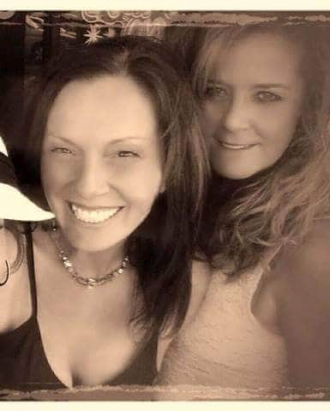
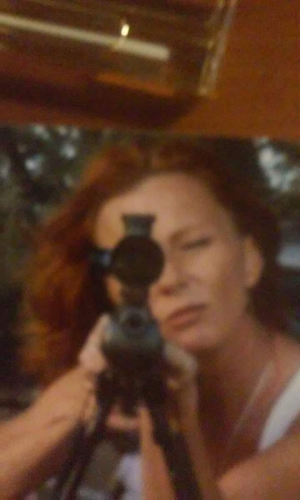
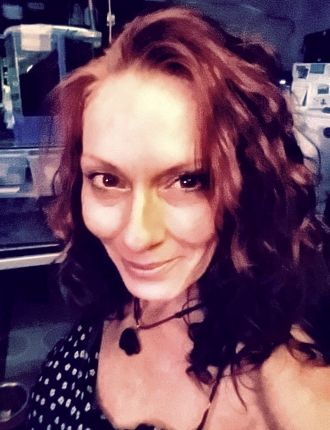


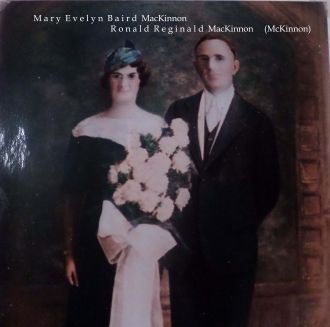


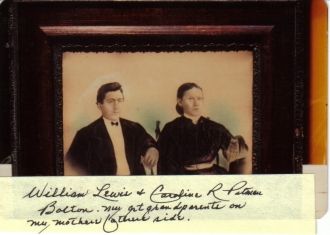

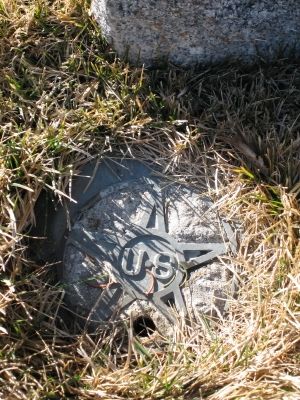
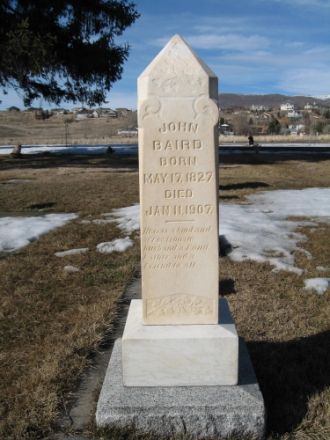
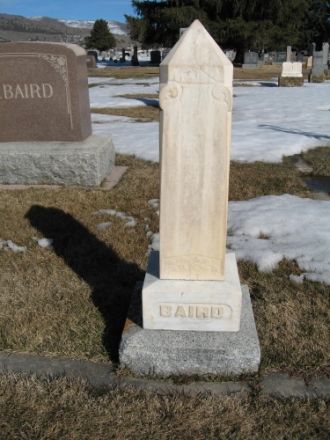
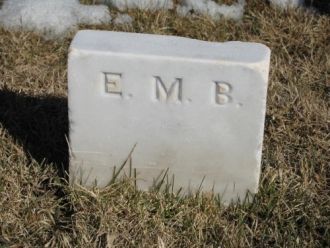
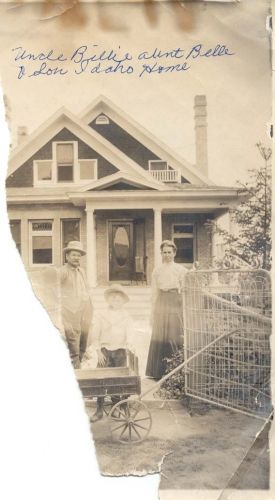

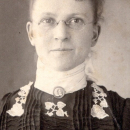
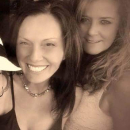
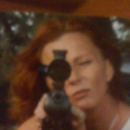
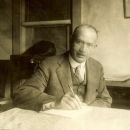
William Marshall,
John Baird &
Robert Marshall Baird
Grandparents of Florence Baird Petree Lambert.
Sent in by Delores Camp
Of Daughters of Utah Pioneers, 15 September, 1960.
For the purpose of refreshing my memory, and for the benefit of those who may at times be interested in learning of some of the golden experiences of the pioneer days, it now gives me pleasure, through the gracious goodness of the Almighty in the preservation of my life through the natural course of things, for more than 77 years, to bear record of the memories and goodness of the Lord unto me; and to testify to some of my personal experiences in bringing about the Lord’s purpose in this part of his vineyard.
The first thing I can think of in my life is when I was three years of age. My grandfather, William Marshall, my mother’s side, was about fifty-five years of age; I think he was a soldier, and had just arrived from the war; he had been in battle of Waterloo; he used to tell me little stories about the war, and sing to me, nice little songs; I loved him very dearly.
He was a short stubby little man, about five feet three inches tall; he used to tell me the bullets used to go over his head in the battle. My grandmother was very kind to me; I remember the house they lived in was only one room with fireplace. The floor was clay and white-washed every day and kept scrupulously clean. The roof was a thatched one. The location was a town named Rutherglen, out of Glasgow, Scotland.
A little later, perhaps a year, I was playing around the house when the word came that my grandfather William Marshall, was dead, and I cried like to break my heart. Some time after, perhaps a year, I took sick with a fever and can’t think of anything more of those days.
The first mention of the name Baird is contained in an old tradition preserved by the Baird family. It states that William the Lion, when hunting, in the southern part of England, was lost from his companions and being suddenly alarmed by a boar, called for help, a man called Baird arrived on the scene and killed he beast, and for this service the King gave him a large portion of land and bestowed upon him a Coat of Arms. On the coat of arms are blazoned a boar on shield and crest, which sustains the tradition.
The founder of the Baird family in America was Lieutenant Baird, who came from Ayr, Scotland, arriving in this country after 1730. He was active in Pennsylvania settlement as early as 1758. He married Catherine McClean, Of Chester Co., Pennsylvania.
There is a tradition that the father of John Baird held a omission in the British Royal Army and took part in the expedition against Canada. He later returned to Scotland, where John, the immigrant was born.
------------------------------------------------------------------------------------------------------------------------------------------------------
The story of Robert Marshall Baird, as told by himself when 80 years of age.
I was born in Glasgow, Scotland, at the head of the Glasgow Green, in Lanarkshire on the 23rd of November in the year 1845. When I was about seven years of age my parents moved to Greenock, Scotland, a distance of about 22 miles, where my father got to work in the ship building yards as a riveter. Then when I was about 8 years of age he got me a job in the steel ship yards to blow the bellows for heating the rivets. I worked at that business for about four years, then I worked for about two years at different kinds of work, then my father got me work in Thomas Shaw’s sheet metal works, where he bound me as an apprentice for six years, to learn the tin-copper-smith and gas fitting trades.
Along about this time I was baptized into the Church of Jesus Christ of Latter-Day Saints. I was baptized in the river Clyde near Greenock; after which time I became very active in the church work. After some time, perhaps a year I was ordained a Deacon and was agent for the Millennial Star; I also collected, and was a treasurer for the poor fund.
About that time I met a young man by the name of John Ritchie, and made a companion of him for several years, during which period of companionship we loved each other very devotedly and upon all occasions of pleasure and duties belonging to the Latter-Day Saints gatherings of all kind, and sometimes going together to Glasgow to sing at social gatherings. I remember on one occasion we were invited to sing in Glasgow. I was to sing an Irish song, and in going up on the platform, the heel of my shoe fell off and caused great laughter in the audience; of course I laughed also and the people thought it was intended for a joke. Well we all had a fine time singing and dancing till six A.M. and we went home with the girls in the morning. Later on that day we returned home to Greenock.
In the spring of 1863, John Ritchie and his mother were preparing to immigrate to Utah. I grieved very much at the thoughts of him leaving me, so I made up my mind to go with him and sent a deposit of one pound to the Liverpool office, as that was demanded sometimes before sailing and paying for your full passage, in a little trunk which I got for the purpose, and kept it under lock and key as I did not want father or mother to know I was going away, because I was afraid they would never come to Zion; but my parents were anxious to know why I kept my trunk locked always, so they opened it and found the secret and advised me not to go that season and they would go next season; but when next season came, they were unable to go, but as they knew I (was) determined to go, they gathered money enough, and in 1865 the Baird Family emigrated to America. However, I left them about two months before they left Greenock and went to Liverpool; arriving there about dark I stayed at a hotel all night and the next morning I started out to find work and found it with an old man who carried on a business if tin-smith and gas fitting. I worked for twenty two shillings per week. After working a week with him he raised my wages to two shillings per week more. I stayed with a family, Mr. Holland by the name, who had a son and two daughters; this family was Latter-Day Saints and good people. Later, about one month, my brother William came to Liverpool and stayed with me until my parents came.
In about another month my parents came with the family, comprised of Ann, James, and Elizabeth; that was in the year 1865. Soon after getting ready, we embarked for America aboard a wooden ship (sailing), called the Bellewood, with about five hundred Mormon emigrants bound for the Land of Zion.
The Mormon people in the old country were counseled by authorities in Salt Lake City to leave Babylon and come as far their money would take them, so Mormon people who came at that time stayed in New York and some located in some other states until such time as they were able financially to come to Zion. Well, we made the trip across the ocean in twenty-eight days, landing in New York, at Castle Gardens where the emigrants landed and where their baggage was left until they went out to change their foreign money into American money and get properly located. So my parents decided to settle in Williamsburg, Brooklyn, where father got work in a boiler shop, and my brother William, being a tailor, got a job in a tailor shop pressing clothes. While I got work in Taylor and Kitchems great tin factory, on Union Avenue in Williamsburg, Brooklyn. They employed about 1000 men; the manager treated me very well, and gave me very fine work to do, as it was our object and aim to go to Utah, we saved enough money to do so by putting our money together; so in the following year we got ready to cross the plains and reach Salt Lake Valley that year, 1866. So about the first of June we entrained for the frontiers of Wyoming and going by way through Canada, which took us about two weeks to reach the frontiers. The place where we camped was called Wyoming, about six miles from Nebraska, up the Missouri River. We camped there until the Ox teams arrived from Salt Lake City to take us across the plains.
Sometime about the first of July everything was ready and we started over the plains in Captain Chipman’s train of ninety wagons, sleeping at night on the ground and listening to the wolves howling all around us (it was something new to us but we got used to it in time, and were never lonesome). Sometimes we would travel about 8 miles or ten or twelve miles in a day but never more.
The Captain always rode ahead of the train on horseback, to find a good camping place, that is, a place where there was plenty of grass and water for the cattle. Sometimes the Indians were very troublesome in trying to steal our cattle. So there were herders sent out to watch them all night and we had to take our turns herding. When we came to camping place we were generally very tired but we had to rustle around and gather chips or wood or whatever we could get to make a fire to cook on. One of us would get fire kindling and another get water and so on. Each had to take his turn in doing things. After meal times, the dishes were washed and put away in the wagon, and in the evenings, very often after supper, we would have a dance. There was always someone who would plat the fiddle or someone would sing a song or tell a story, or preach a sermon, so the evenings were well spent in this way till bedtime who was nine P.M.
In the morning the bugle sounded about day break, then we got out of bed, washed and got breakfast, washed dishes and off again, and so on every day. On one occasion, about 200 miles from starting point there was a large Ox team train. They were all double wagons and heavy loaded, bound for Montana by way of Salt Lake City. The Captain of that train came and asked Captain Chipman of the Mormon train if some of the young men in his train would take a job to drive team for him at $30.00 per month. Mr. Chipman told him yes, if they wanted to, so my brother William and myself and seven other men joined this train, one of the men took his wife with him, a man by the name of Samuel Pike; making nine Mormons all told. The Captain of this Ox train promised faithfully to pass and re-pass the Mormon train as often as convenient, so we could see our parents occasionally, but he broke his promise and as soon as he came to a cut-off he took it and went on what they call the Pool Creek Route, we never seen the Mormon trail again. Of course, when we found out that he broke his promise and took another road, we all felt very bad and down hearted on account of not being able to see our parents anymore, and the teamsters were all Mexicans and could speak no English, and as we eat by ourselves these Mexicans would throw chips at us to provoke us to the extent that we made up our minds all together to leave this gentile freight train and travel by ourselves through the mountains and over the sandy deserets; so when we came to the North Platt River, we seven of us left the train and traveled alone. When the captain, Big Jack Ryan, as he was called, overtook us he pulled one of his revolvers from his side belt, ordered us to return to the train and snapping his great black snake whip thinking to scare us but failed to do so, then returned himself without us, his bluff did not work, so we kept on traveling, lying down at night where ever night found us and expecting all the time to meet hostile Indians. However we were very fortunate in not seeing any; although sometimes we were very hungry, having to travel very far perhaps all day, without anything to eat or drink.
On one occasion we got a little flour from a home stage station. These stage stations were fifty miles apart. We got some flour from them, wet it to make a dough, rolled some of it around a piece of stick and baked it in a fire made from buffalo chips, it was very sweet to eat.
We kept traveling till our shoes were through, then we had to walk bare-foot and the going in daytime was very bad on account of the heat of the sun and no shelter, especially traveling through Big Sandy Desert.
We journeyed this way till we arrived near Green River, perhaps about fifty miles from it. When we overtook another Ox train bound for Salt Lake City.
My brother and I and another one of the men hired with that train. So then we drove to Green River. In driving the Oxen through the water, the gravel came from under my feet and I was carried in the stream, below the cattle and was nearly drowned, but the Captain of the Ox train rode in the river on his mule and swore at me, telling me to catch on to the mules tail, so I caught hold of the mules tail and was pulled out of the water and was so sick I had to go in the wagon and lay there for two days to get well; and so we traveled along, arriving in Salt Lake City at 8 P.M., we drove into the eighth ward square, then a corral for camping of all the Ox freight trains that came into the city. This square is now occupied by the city and county building.
After settling with the captain, my brother and I went up to the old tithing yard, as someone told us that the Mormon emigrants were camped there, so we lost no time in going there to try, if possible, to find our parents. There was a high stone wall around the tithing yard, and a double gate to admit team and wagon, and a small gate for people to enter. We got a permit to go in to see if out parents were there; in looking around the camp fires where many were cooking supper in the evening as was dark then, October 4th, 1866 about eight P.M. We caught sight of father cooking some bacon, and as we approached, mother caught sight of us; she jumped and throwing her arms around our necks, began to cry with joy as seeing us, for she had heard that the Indians had killed us. After supper we got ready and went to bed beneath the wagon, while father and mother slept in the inside with my two young sisters and one young brother, whose name is James R. Baird now of Heber City.
My uncle Robert, who had come to Zion with John Riche about two years previous, lived in Heber City at that time and advised us to settle and make our home there, which we decided to do. So we moved our family to that place, and as it was fall, we had to get busy and work for the winter food supply.
We got a job picking potatoes and sacking them, All our family worked, and soon had enough potatoes to last us all winter, but we needed bread and butter and as it was a new settlement everybody was poor and had very little to part with to anyone, but we followed the thrashing machine and gathered in enough wheat which we took to the mill got it ground into flour.
I heard of a man by the name of Bill Reynolds, who had a team and wagon and would be willing to go out with me and go into the different farm houses and ask them if they had any pans or tin ware of any kind to mend. So we went to many settlements, camping out at night, and staying away for a week at a time and we came home loaded with many different kinds of products, such as butter, meat of all kinds, soap, cheese wood ashes and wool, also old iron, such as a shovel and an ax, an axel and they served me as tools. I would cut down oyster cans, put handles on them and trade them for anything we could get. I went out in other settlements soldering milk pans and any tin ware that was leaking. In this way I brought into the house all kinds of food, but there was no money to be had.
We lived in a log house and as winter came on, we got busy fixing our log cabin trying to keep out the snow and wind. As we were unable to get firewood out of the canyon, we gathered sage brush and used that for firewood; it kept us busy firing up to keep warm as there was no windows or doors in the house; we had to put a blanket up at the window and door, and when February came, mother was confined and gave birth to my sister Jane, now living in Carey, Idaho.
In the spring of 1867, it was rumored around, that a canal was going to be made to water the land ten miles west of Ogden, called at that time Muscrate, now called Hooper; also, that land could be had, by working on the canal, to be paid in land.
One day I started on foot from Heber City with a little bread in a flour-sack to walk to McFarlin Settlement to put my name down on the canal. It began to snow when I got to the top of the Wasatch divide, and continued to snow all the way down Parley’s Canyon; but as I neared Salt Lake City, it commenced to rain, it was very muddy walking through Bountiful, Centerville, Farmington, and Kaysville until I got to the sand ridge; by that time it was getting quite dark, still raining and I was very tired. I lay down on the ground, and it rained on me all night; about dawn I heard the c*** crowing and walking in the distance, all drenched with rain, reached the brow of the hill and there was a man milking cows; I entered the coral and approached the man, he said “where have you been? Come in the house and get a bowl of milk, and get warm.” After doing so I asked his name, he said James Richie. I asked the name of the Settlement, he said Morristown. After breakfast I left for McFarlin Settlement, about four miles away; I asked the first man I met where I might find Mr. Gardner, he answered “I am Mr. Gardner, and I am in a hurry; I am going to Salt Lake City, and will take your name and let you hear from me when I am ready to begin work on the canal. I returned to Salt Lake City with Mr. Gardner and on the way to we stopped at a farm to feed; and to my surprise found that a family of saints who had crossed on the same ship with me. On my arrival in Salt Lake City I secured work for a few days from Alfred Best, a hardware man; as there was no money I accepted some tools for my pay. I then returned by way of foot, with my tools on my back, to Heber City.
As time past my father took up 80 acres of land on Lake Creek, so I was kept busy helping to get the land in shape to farm. I got a square and plumb-bob and began to survey for an irrigation ditch around the farm which took about a week, then I commenced to grub sagebrush and help build a cellar and get settled properly which took over two years and in 1869 the Union Pacific Railroad Company made a call for men and teams to go out and work on the railroad. Father, brother William and myself decided to go out and work on the Union Pacific railroad and earn some money as we hadn’t seen any since we left the States to come west. We found someone who had a team, which was at Bear River Wyoming, when we arrived there we found many men were already there waiting on tools to work with. Such as, shovels, picks, and scrapers, and as we had been waiting so long and all the time buying food on credit, we were getting very much discouraged as the summer was nearly gone.
One day a man named Pharo, came into camp looking for a men to go out near Fort Bridger to dig for oil, so we agreed to take his offer and the next day we pulled out with him for the ground, Father commenced to dig for oil, I was selected to be cook and the others had to go up a hill and roll down rocks to build a warehouse to hold the oil; also to live in; as yet we had only a log cabin with a dirt floor and roof to live and cook in.
One morning very early, on looking out of the door, I saw Indians coming toward our cabin all painted black; as they came nearer I could see that it was Indians all in single file and painted black, heavily armed and carrying long spears high in the air with ribbons on the ends. As they approached our camp one of them who could speak a little English said, putting to his mouth “something to eat”, so they all sat down in a ring on the ground, twelve of them and we gave them breakfast. After which they bade us good by saying they would come back on horse-back, which they did in about a week, and early in the morning, got breakfast and left. When they first came we thought our end had come because of their faces being painted black; every man in our camp, seven of us were as white as a sheet as we were four miles from the stage station and not a person within that distance.
After working there several months until the snow fell, we returned to Bear River where a number of all kinds of merchants were locating to make a city, and many of them had built log houses and stores to put their dry-goods and groceries in. Father and I were offered $20.00 per day to work for them covering their roofs with straw and dirt. In this way we gathered enough money to buy a yoke of oxen. We let my brother William have them to work scraping on the railroad while father and I stayed working in Bear River City till we made enough to buy a span of mules, then we all went to work for the U.P Railroad scraping and made money, then returned home with one yoke of oxen and a span of mules and some money.
When the spring of 1869 came we put in crops of wheat and potatoes. Later on there was a call for men to go out to the promontory to work for the Southern Pacific Railroad grading, so we started on our journey to the promontory and worked with our teams.
After a few months we returned to our homes in Heber City to take care of the crops and get in wood from the canyons for winter. The Indians at this time were very hostile and at times came into the corral and drove away our cows or horses and frightened the people a great deal; so companies were formed to protect all property. I belonged to Captain J.M. Murdock’s company and was sent to fight the Indians and watch them, and if necessary drive them back.
About this time President Brigham Young sent several leads of flour and other food supplies to the Indians after which times very peaceful, so we all came home and began harvesting our grain and stacking it up. This grain was raised at the mouth of Daniel’s Canyon, about four miles from Lake Creek.
On one occasion my brother William and myself went over to that farm on Daniels Creek to stack up the grain, and we saw a number of Indians and their squaws thrashing out the grain; we were very angry at seeing the, do this and when we went to scold them they ran after us with a knife, so we had to run for our lives to get away from them.